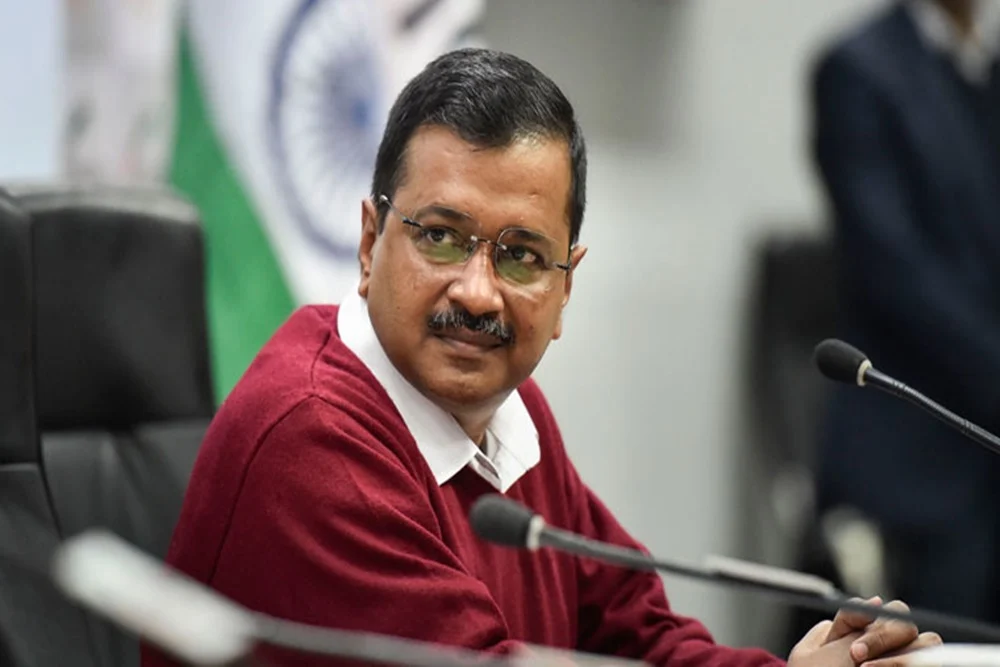As Delhi struggles with an intense water crisis exacerbated by soaring temperatures, Chief Minister Arvind Kejriwal seeks centre’s help as citizens endure a severe water crisis. On Friday, he called on the Centre and the BJP to encourage the governments of Uttar Pradesh and Haryana to assist in meeting Delhi’s water needs.
Kejriwal urged the BJP to set aside political differences and collaborate with the state government to address the pressing issue. “In this scorching heat, the demand for water has surged. Meanwhile, the supply from neighboring states has dwindled. We need a collective effort to solve this problem,” Kejriwal stated in a post on X (formerly Twitter). He added that BJP protests will not resolve the issue, and instead, a united approach is necessary to provide relief to Delhi’s residents.

If the BJP can persuade its governments in Haryana and UP to supply some water to Delhi for a month, the people of Delhi will be immensely grateful. The extreme heat is beyond our control, but together we can mitigate its impact,” Kejriwal appealed.
The apex court has directed the Delhi government and the Delhi Jal Board (DJB) to ask Haryana to maintain the current water supply levels, while also instructing Haryana to independently decide on the matter.
Chief Minister Arvind Kejriwal, concerned about an impending water crisis, has written to Lieutenant Governor Anil Baijal, urging swift action. “Just two days are left, we need to act fast to prevent a crisis,” he wrote. He suggested that Baijal should contact the Prime Minister for intervention if Haryana does not respond.
In his correspondence, Kejriwal emphasized that a disruption in water supply from Haryana could severely impact the Chandrawal water treatment plant. This plant is crucial as it supplies water to key areas in the NDMC region, including the Rashtrapati Bhavan, Parliament, embassies, railway stations, and hospitals. He highlighted that any disruption would not only affect the general public but also these critical establishments.
Kejriwal also mentioned that the Delhi government has already approached the Upper Yamuna River Board for a resolution. However, he noted that the board’s final decision might take some time, indicating the urgency of interim measures to prevent a crisis.
Amid these challenges, Delhi residents have reported severe water shortages. The government has established a “war room” and pledged “Har Ghar Jal” (water in every household), but many areas continue to suffer.
In places like Sanjay Camp in Chanakyapuri and Geeta Colony, people endure long waits in intense heat, hoping to collect even a single bucket of water. Tankers, often inadequate to meet the demand, are a common sight, yet many residents are left without sufficient water.
Despite submitting numerous applications regarding the water crisis, residents feel their concerns are ignored. In Geeta Colony, East Delhi, the dissatisfaction with the government’s response is palpable. Rudal, a local resident, expressed his frustration: “It’s a major issue. Only one tanker serves our large colony. We’ve submitted two applications to the government, but no one listens to the poor. We have to buy drinking water, which costs 20 rupees per bottle.”
Another resident echoed these sentiments, noting the supply is available only once daily at 11 am. “With so many people waiting, many leave empty-handed. We often have to buy water or find other means to manage,” the resident said.
Officials occasionally visit to assess the situation and note complaints but fail to return with solutions, according to Sagar, another Geeta Colony resident. “There are at least 4,000 to 5,000 people here. One tanker isn’t sufficient,” he lamented.
Pushpa, from South Delhi’s Raju Park, highlighted the difficulties in getting government tankers, which take up to 20 days to arrive, compared to costly private tankers that charge Rs 1800-2000.

Meanwhile, BJP women workers protested outside Delhi Water Minister Atishi’s residence on Tuesday, condemning the Kejriwal government’s handling of the crisis.
The Delhi Meteorological Department forecasts a maximum temperature of 45 degrees Celsius for Friday, following a peak of 47 degrees Celsius in Ayanagar on Thursday, adding to the urgency of addressing the water crisis.
As the situation worsens, the need for coordinated action between the Delhi government and neighboring states becomes increasingly critical. Kejriwal’s appeal underscores the importance of unity in tackling the severe water shortage affecting the capital during this extreme weather spell.
Also Read:
Indian Navy set to Finalize Rafale M Fighter Jet Agreement with France




1 Comment
Pingback: Delhi's Water straits : Heatwave and Political condemn Game - INPAC Times